The Ultimate Shopping Experience
There are thousands of articles and an equal number of experts out there offering advice and counsel on how to buy engagement rings. I know, it can be completely overwhelming with so much information, advertisements, and choices.
In addition, there is the well-meaning advice from family and friends, they all have their story to tell and strong opinions. And because you love your partner enough to marry him or her, the pressure to exceed expectations is paramount.
It is daunting. You are told you must learn all the technical and quality factors of diamonds before you shop. Websites with diagrams, scales and measurements are dry. This certainly take the romance out of the process, or worse you can fall into the rabbit hole and be totally consumed by table millimeters sizes, crown angles, and girdle thicknesses.
I am going to start by saying, don't worry we will address and simplify this part of the process for you a little later.
I'm going to flip the script here and take the pressure off the purchaser and put it where it belongs, on the jewelry sales professional.
As I mentioned above, the guidance given is almost always what you, as the purchaser needs to do, rarely are consumers given information on how jewelry professionals should interact with purchasers. Their role is much broader than just standing behind a counter, pulling out rings and reciting the information on the tag: diamond color, cut, clarity, carat weight and price...
What Should Your Experience Entail?
If you are a shopper that prefers to see, touch, and speak with a real person when making purchases, the prospect of going into a store to shop for an engagement ring for the first time can be intimidating.
Some luxury brands have reputations for prejudging customers as they walk in the door, which may or may not be fair. But it goes without saying that purchasers want to feel comfortable, welcome and trust the establishment they deal with. It can help to look at websites for the stores/brands you are contemplating, which will tell you a lot about the brand.
Reviewing websites can help you weed out those stores/brands that may not appeal to you. Check out their return/exchange policy, jewelry warranty and diamond report offered. Also look at payment plans, and of course quickly scan the assortment to make a decision if they are worth visiting.
Family-owned local jewelers are usually good options, especially if they have been in business for generations. Not only have they formed close ties with their customers because they have earned their loyalty and repeat business. They also have to try harder as they compete with chain brands and prestige jewelers that pour millions of dollars each year into marketing.
Let's dig deeper into the actual interaction. What should you expect from a good interaction and what should tip you off to run for the hills!
What You Should Expect From A Jewelry Sales Professional (JSP)?
Focus groups have revealed that the experience customers have with the person showing them rings will highly influence

their purchasing decisions.
Maximizing the experience and forming a connection with you is paramount. A good JSP will "read the room" so to speak in terms of your level of nervousness and willingness to be approached. Their job is to put you at ease.
I want to stop here and say that I am not here to criticize jewelry professionals, I was one myself for many years. You must be on your feet all day, with the pressure of achieving sales targets that many times seem unreasonable and are job-dependent.
There is a multitude of tasks that also need to be accomplished while trying to make sales...The majority do their best; they just may not have had the training they need to create a luxury experience, while at the same time conducting an efficient and helpful dialogue with their customers.
Let's start at the beginning, as the first few minutes can determine whether you stay or recoil. Hopefully, your JSP has broken the ice and put you at ease. Once s/he has acknowledged the importance and celebratory nature of the occasion they should ask you several critical questions (BEFORE they even begin to show you the rings on hand.) Taking this approach will put them AND you on the path to finding the perfect ring.
What Exactly Are These Critical Questions?
What is most important to you about the ring you are going to buy?
Is it the style of the ring, diamond size or shape, price, or timeframe (how quickly do you need the ring?) Providing this information puts you both on the right track, no one is wasting time looking at rings that won't work for an unspoken reason.
Tell me about your partner’s tastes; tell me a bit about the jewelry s/he wears.
This can be very helpful if the purchaser hasn't discussed rings with his or her girlfriend. She might be a person that doesn't wear any jewelry at all, which could be an indicator that a ring with a lot of bling may not be her style.
Describe your perfect ring.
Great question for the recipient if she is present, she might see the exact ring of her dreams in the showcase.
What have you discussed about the ring?
Pretty straightforward, any details you can provide are helpful.
What research, if any, have you been able to do so far?
Either on rings or diamond quality. No need to tell them where you shopped, just share your level of exposure to information and ring options. This naturally leads to a discussion on what you liked or didn't like.
If your JSP does any of the following, you might want to reconsider.
Starts by asking closed questions, e.g. Can I help you?
For some people, this question may immediately make them feel pressured, you should receive a warm welcome and be eased into the engagement conversation somewhat slowly, and on your terms.
Talks more than you do. Or just stands there and does not talk or ask questions at all.
JSPs may go on and on, telling you all they know, or what they share may sound scripted, not making a connection to anything you asked about. Or they behave in the opposite way, very little dialogue, which communicates to you that they don’t really care.
Acts as if they are just there to take out the rings to show you, not to help you buy.
This is known as clerking, and not much fun when your time in the store should be an exciting, celebratory occasion.
Asks you what your "budget" is right away.
It is important for JSPs to know, however, it should not be asked until after the questions above have been asked and answered. If it is the most important or non-negotiable factor then you will tell them when they ask what's most important.
He or she does not ask what your thoughts are...
or maybe they make you feel it's time for you to go.
The JSP may feel they aren't getting anywhere and offer to write SKU numbers on their business card and send you on your way, with no follow-up requested.
You can tell they are not listening.
You tell them that you like or don't like certain things and they totally disregard what you've said. Or they try to push a certain style because it is popular or one of their personal favorites.
If for any reason you don't seem to connect with the first person that approaches you but you are impressed by the rings, don't be shy about asking for someone else to help you. I know it's hard to do, but important when you are spending a substantial amount of money.
Or, you can always leave and come back later or call the store manager and explain the situation. Store owners and managers want to know these things and are more than willing to do what it takes to make customers happy.
How Much Should You Spend?
This is an easy question to answer. Whatever price you are comfortable with. Each person has their own unique financial situation and as with any substantial purchase, they will have thought about how much they want to spend before they begin to shop.
A common guideline that you have heard is that the correct amount to spend on an engagement ring should be two to three months' salary. That may or may not work for everyone, so it goes back to your personal comfort level and the desires of the recipient. One person may easily be able to afford a 3-carat diamond ring, but the recipient feels that is just too much in terms of size.
So each couple should do what's right for them. That's where researching diamond rarity impacts price. The higher the diamond grades on all the GIA grading scales it is (4Cs) the rarer it is, but does not necessarily mean it is of better quality, it just means that it is rare. E.g. F color diamonds are rarer than G color diamonds, etc. and even professionals would not be able to tell the difference just by eye-balling them.
As with all things, the rarer, the diamond is, the more expensive it will be. Consequently, there are many price-point possibilities once you acquire a basic understanding of the 4Cs and how they affect the price.
Conclusion
I hope the tips we've provided on how to buy an engagement ring have been helpful. This is an expansive topic that we've tried to distill down to just the initial interaction.
Take the time to think about the responses to the questions above, so even if the jewelry professional doesn't ask them, you will know what information is important to share in order to have an efficient and productive experience and buy the ring that will make your partner happy for a lifetime.
If you would like to learn more about the GIA diamond grading system and reports, Click here
Thank you for taking the time to read our article.
Happy Shopping!
Francesca de Granville, G.G., F.G.A.


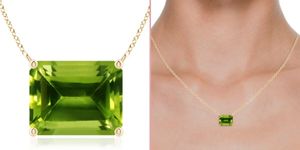
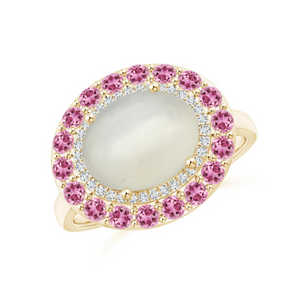
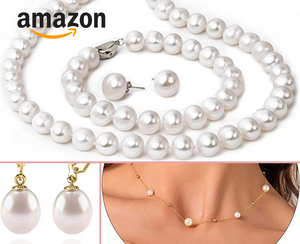
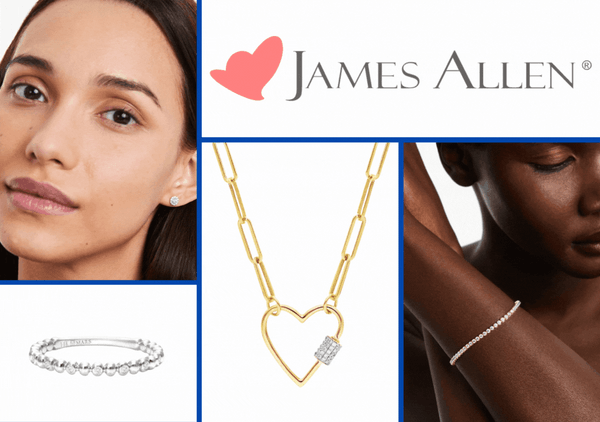
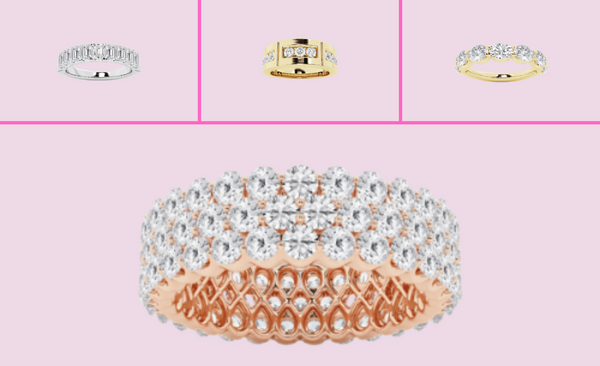

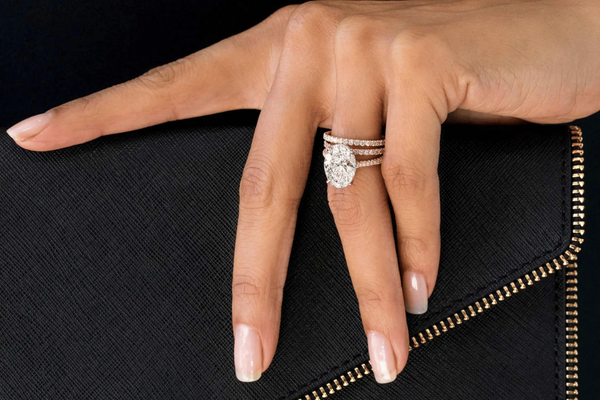
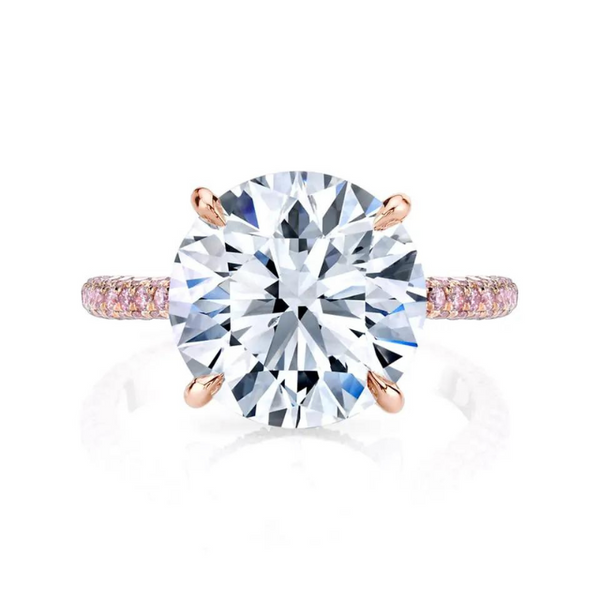
Member discussion